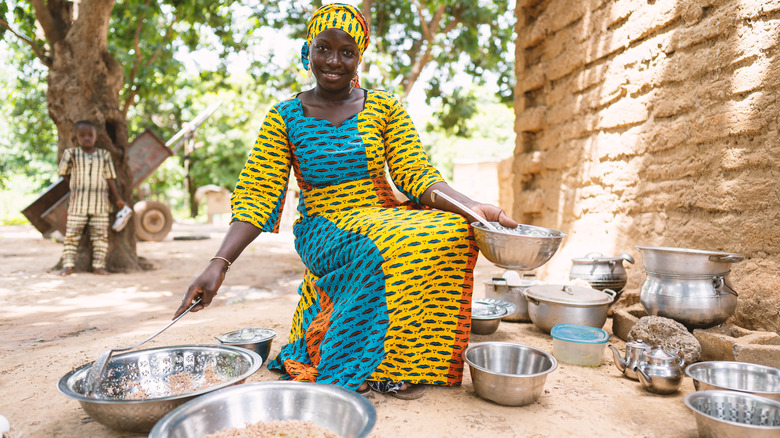The Disturbing Truth About The Global Food Crisis
You are living it — the food shortages, the inflation, the climate disasters. While there's an extreme drought in Europe (via CNBC), there's skyrocketing food prices in the United States and shoppers are noticing a lack of essentials like meat, eggs, and more at the grocery store (via Business Insider). However, aside from all of these issues lies a much bigger problem: world hunger. According to the World Food Programme, about 828 million people go to bed hungry every night with 50 million people on the brink of starvation. The number of people affected by hunger has grown by 150 million since before the COVID-19 pandemic, according to a report on The State of Food Security and Nutrition in the World 2022.
Unfortunately, some of the hunger crisis also stems from the conflict in Ukraine affecting the food supply, as the country is one of the main exports for grain. As AP News points out, Russia's invasion of Ukraine is predicted to expand food insecurity even further since the war initially began in February of 2022. All of these numbers are alarming, but there is one detail that may be more disturbing. As research on the world hunger crisis continues, it seems that women are being affected by the global food crisis more than men, CNBC reports.
More women are struggling with food insecurity than men
The humanitarian organization Care highlighted gender equality and food security globally in a recent report. When comparing men and women over the age of 15, the study found that 126.3 million more women than men are hungry. The research claims, "For example, studies by the FAO and UNICEF have proved that women suffer the most during shocks, especially since they are responsible for the preparation and management of food." Studies showed that this was true in countries such as Malawi, Tanzania, and Nicaragua where gender norms limit many women's ability to earn and spend income.
CNBC explains that women suffer more due to man-made conflicts, societal beliefs, and a lack of women's rights. While both men and women are affected by food insecurity, women are viewed as caretakers, as they normally eat last and eat the least or skip meals to provide more food for their families. It is estimated that the gap between food insecurity for men and women has increased by 8.4 times since 2018.
Tragically, the hunger crisis does not have a bright future ahead with the Food and Agriculture Organization of the United Nations predicting that 8% of the world population to be undernourished by 2030. That's approximately 670 million people. While China and the U.S. are butting heads over the food crisis, only time will tell what will happen next.

